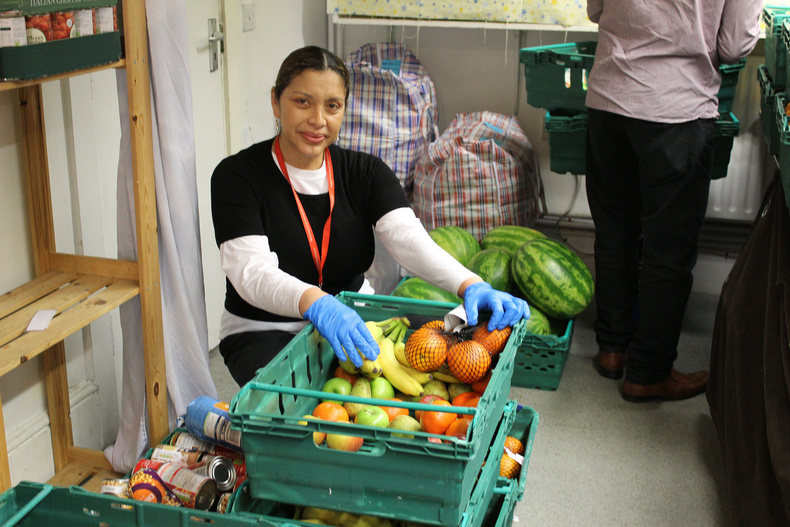FareShare backs campaign to end scandal of unsold food being wasted

FareShare Midlands is backing the #FoodOnPlates campaign to stop millions of tonnes of fresh, unsold food from being wasted, when it could instead go to charities and community groups feeding families.
One in eight people in the UK struggles to afford food - and the pandemic has resulted in many more families facing food insecurity, with 67 per cent of charities providing emergency food aid saying they would have to continue, even as restrictions ease.
Despite this, it is cheaper for farmers to waste good-to-eat food than get it to charities putting meals onto people 's plates.
France, which offers business incentives through reduced taxation for food redistribution, gets six time more unsold food to charities.
WRAP estimates there is more than two-million tonnes of edible surplus food in the supply chain, with the majority found on farms.
'Lifeline ' UK government funding launched in 2018 that helped farmers cover the costs of getting unsold food to charities has been axed - and calls to renew it have been rejected.
The #FoodOnPlates campaign calls for funding of £5m a year to help farmers and food producers cover the costs of safely storing and transporting unsold food so it can be redistributed.
This would enable the UK to double the amount of food delivered to those in need. Without it, 53m meals worth of food will be wasted.
During the pandemic, the FareShare network (of which FareShare Midlands is a member) distributed 19,000 tonnes worth of emergency food supplies donated by government and businesses - thanks to a campaign with ambassador Marcus Rashford - alongside over 35,000 tonnes of good to eat surplus, unsold food from farms and food producers.
However, demand for food remains incredibly high - particularly for charities supporting children and families, and for those providing emergency food aid.
In the Midlands, three time the volume of good was distributed at the height of the pandemic compared to pre-pandemic volumes.
By the end of 2020, FanShare had sent out enough food for nearly 16 million meals via its community food members, a network of over 500 charities and community groups.
FareShare Midlands director Simone Connolly, said: “The impact of COVID-19 continues to be felt by families across the region, with many still facing food, housing and employment hardships.
“Our community food members are trying to feed more and more vulnerable people who simply do not have enough to eat.
“FareShare can help these organisations provide this vital lifeline if the food industry, at scale, and not just retailers, can afford to re-direct their surplus food to organisations like ourselves. We can then redistribute this food, avoiding massive, unnecessary food waste. ”
FareShare CEO Lindsay Boswell, said: “Our network of frontline charities has been a lifeline for families during the pandemic, and, sadly, demand now remains at similar levels.
“It 's a scandal that good food is left to rot in our fields or be thrown into biogas digesters or landfill when so many families are still dependent on food aid in the wake of the crisis, with thousands more unable to afford healthy fruit and veg.
“One in eight people struggle to afford food - and 64,000 people die from conditions related to poor diet every year. Getting healthy food from farms into our most deprived communities will help tackle the ever-widening 'nutritional gap ' between the richest and poorest in society.
“France rescues six times more unsold food than we do in the UK, in part thanks to tax breaks that cover the additional costs of getting that food to charities. That 's why we 're calling on the government to reinstate lifeline funding to save good food and get it onto people 's plates. ”
